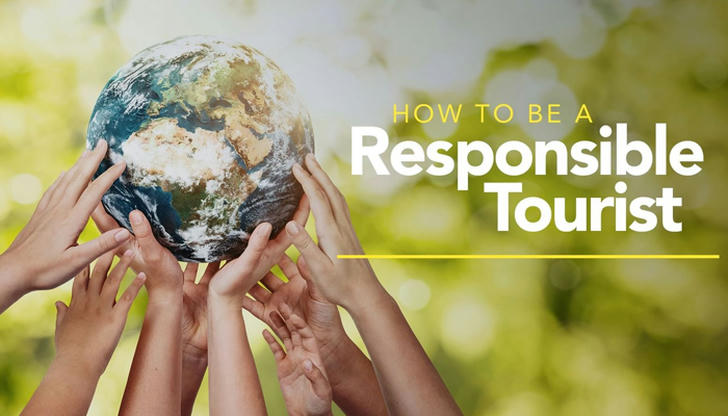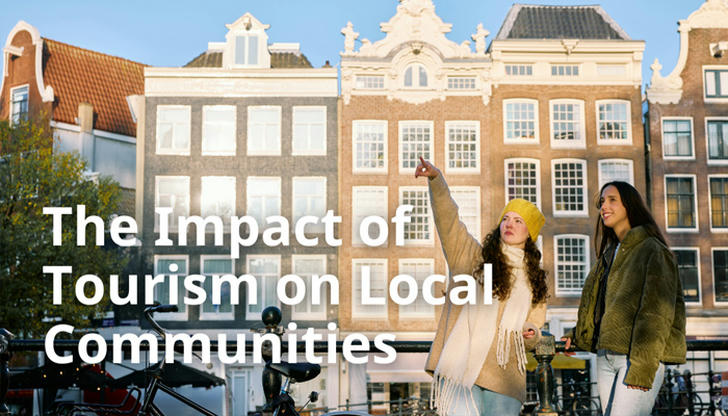Responsible Tourism: Supporting Local Communities While Traveling
Tourism is a global powerhouse, generating trillions in revenue and providing livelihoods to hundreds of millions of people worldwide. Yet, its rapid expansion has brought serious concerns—environmental degradation, cultural erosion, economic inequality, and community displacement. These challenges call for a paradigm shift in how we explore the world. Enter responsible tourism: a movement that prioritizes ethical, sustainable, and community-supportive travel practices.

In this comprehensive guide, we will explore what responsible tourism entails, why it's essential for global well-being, and how you can travel in a way that uplifts local communities, respects the environment, and leaves a positive legacy.
What Is Responsible Tourism?
Responsible tourism is about making choices that benefit local people, cultures, economies, and ecosystems. It goes beyond simply reducing your environmental footprint; it involves active efforts to:
- Respect local customs, cultures, and traditions
- Support locally owned businesses and services
- Contribute to economic development without exploitation
- Minimize environmental damage and overuse of resources
- Empower communities through inclusive and ethical engagement
Unlike mass tourism, which focuses on volume, convenience, and profit, responsible tourism emphasizes equity, sustainability, and cultural sensitivity.
Why Supporting Local Communities Is Vital
1. Promotes Economic Resilience
Spending money with local businesses ensures income remains in the community, helping to reduce poverty, stimulate entrepreneurship, and foster long-term development. When tourists opt for international chains, most of the profits are repatriated, offering little local benefit.
2. Strengthens Cultural Identity
Tourism can either preserve or erode cultural traditions. Responsible tourism encourages the former by supporting indigenous crafts, music, language, and cuisine. This revitalization fosters community pride and cultural continuity.
3. Enhances Environmental Stewardship
Local communities who benefit from tourism have more incentive to preserve their natural surroundings—forests, wildlife, marine life, and landscapes. This symbiotic relationship promotes conservation initiatives driven by community members.
4. Fosters Social Cohesion
When tourists engage respectfully and authentically, it promotes cross-cultural understanding. Inclusive travel experiences reduce stereotypes, encourage tolerance, and open pathways for dialogue.
Core Principles of Responsible Tourism

1. Choose Community-Based Accommodations
Select family-owned hotels, B&Bs, homestays, or eco-lodges. These not only offer authentic experiences but ensure profits stay in the hands of locals. In many cases, such accommodations employ sustainable practices and are embedded in local traditions.
2. Dine at Local Restaurants and Markets
Avoid global franchises and instead eat at traditional eateries. Buying fresh food from local markets supports farmers and reduces the carbon footprint of food logistics.
3. Shop Ethically and Locally
Support artisans by purchasing handcrafted goods. Avoid items that are imported or mass-produced. When possible, seek products certified as fair-trade or sustainably sourced.
4. Hire Local Guides and Transport Services
Locally based guides offer deep knowledge and insider access, enriching your experience while ensuring fair wages and community benefit. The same goes for drivers, tour operators, and other service providers.
5. Be a Respectful Cultural Ambassador
Learn basic phrases in the local language. Understand local etiquette, dress appropriately, and ask permission before taking photos. Honor religious or sacred sites and behave humbly.
Practical Tips for Supporting Communities on the Road
1. Do Your Homework
Research cultural norms, current socio-political issues, and community-led tourism options before arriving. This preparation prevents cultural faux pas and enhances your awareness.
2. Use Your Dollars Thoughtfully
Be conscious of how and where you spend your money. For instance, instead of pre-booking everything online, leave some flexibility to hire guides and book tours upon arrival. This supports local entrepreneurs who often rely on foot traffic.
3. Volunteer Responsibly
If you want to give back, ensure your efforts are truly beneficial. Avoid "voluntourism" gigs that may displace local workers or exploit vulnerable populations. Choose long-term, skills-based programs or donate to organizations with transparency and accountability.
4. Avoid Exploitative Practices
Don't support unethical wildlife encounters (e.g., tiger selfies, elephant rides) or staged cultural experiences that commodify traditions. Instead, support verified sanctuaries, cooperatives, and community-led initiatives.
5. Travel Off the Beaten Path
Destinations overwhelmed by tourists (like Venice or Machu Picchu) often suffer from resource strain and inflated living costs for locals. By exploring lesser-known regions, you spread economic benefits and discover hidden gems.
Case Studies of Responsible Tourism in Action

Thailand: Hill Tribe Homestays
In Chiang Rai, community-run homestays allow visitors to learn about traditional farming, weaving, and cooking. The income supports education and healthcare for local children while preserving tribal customs.
Colombia: Coffee Region Eco-Tourism
Small farms in the Zona Cafetera welcome tourists to learn about coffee production, stay in fincas (farmhouses), and explore nature. This tourism model helps farmers diversify income while protecting biodiversity.
Tanzania: Maasai Women’s Cooperative
Visitors to Maasai communities can buy beadwork and textiles directly from female artisans. The proceeds fund education, healthcare, and women’s leadership training.
Supporting Marginalized Groups Through Tourism
Travel can be a powerful tool for empowerment. Look for:
- Women-owned businesses: Book female-led tours or stay at women-run guesthouses.
- Indigenous tourism initiatives: Engage in tours owned and operated by indigenous communities.
- LGBTQ+ safe spaces: Support businesses that prioritize inclusion.
- Disabled-friendly services: Advocate for accessibility and support businesses that invest in inclusive infrastructure.
Using Tools and Certifications
To identify responsible providers, look for:
- Travelife: Certifies hotels and operators for sustainability.
- Green Globe: Focuses on eco-conscious business practices.
- Fair Trade Tourism: Promotes equitable employment and trade.
- Pack for a Purpose: Connects travelers to nonprofit needs in communities they visit.
Use directories like Responsible Travel, Ethical Traveler, and Tourism Concern to plan ethically.
Responsible Travel in Times of Crisis
If you’re visiting areas recently affected by natural disasters, conflict, or economic hardship:
- Avoid exploitative "disaster tourism"
- Support local recovery efforts through verified NGOs
- Stay at local hotels instead of foreign chains that may not reinvest in the community
- Avoid burdening strained infrastructure (e.g., limit visits during water shortages)
The Role of Governments and Tour Operators
While individual travelers play a key role, governments and companies must also:
- Enforce ethical labor practices
- Regulate tourism development
- Invest in cultural preservation
- Educate tourists through campaigns and signage
As consumers, we can demand better by choosing ethical operators, leaving reviews, and spreading awareness.
Final Thoughts: Travel as a Force for Good
Tourism can either be extractive or transformative. When done responsibly, it uplifts communities, safeguards the environment, and enriches cultural understanding. Every travel choice—where you sleep, eat, shop, and explore—creates a ripple effect.
By traveling mindfully, we become more than tourists. We become stewards of sustainability, allies of equity, and ambassadors of peace.
Let your journey not only change you—but improve the world for those who call your destination home.
